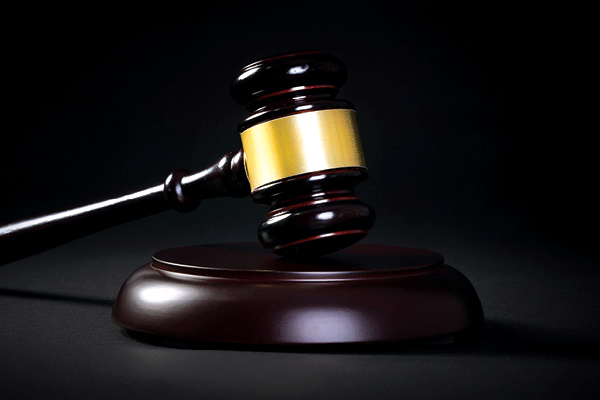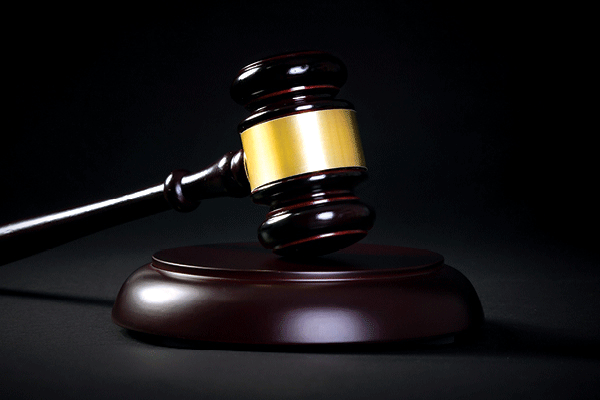
As commercial disputes become more common across Asia, support services for litigation and arbitration are mushrooming as well, and technology firms providing lawyers a host of tools to work with. By Alfred Romann
Skip to
From untenable business disputes, growing conflicts tied to intellectual property rights and the longer reach of corruption legislation, there is no getting away from the fact that litigation is on the rise throughout Asia.
As more companies undertake litigation or face the potential for litigation in multiple – and often quite different – legal environments, law firms and companies are seeking service providers that can support them.
The demand for legal services associated with litigation is also driving demand for litigation support services in Asia. These support services cover a range of areas, including digital document management, in-depth research and investigation services. As the amount of litigation in Asia goes up, so does the number of litigation support services that lawyers can access.
On the technology side, companies are offering more e-discovery and document production services as well as e-trial and trial management solutions, among others. Others are working with lawyers to do more reliable research and investigations that can boost lawyers’ litigation efforts.
One such company is Australia’s Law In Order, which “offers a range of services from document production and data processing to consulting, where you empower lawyers to optimise the discovery and trial experience for their clients,” says Amanda Whelan, head of global sales and marketing.
According to Whelan, demand for Law In Order’s consulting and advisory services only increases after clients become familiar with the various services and how these can be used to facilitate litigation efforts.
“Our clients in Asia had to experience the benefits of our holistic and integrated suite of services before they were valued,” she explains. “The support we offer is real and it’s not ‘too good to be true’ – it’s just a new business model for the region.” In terms of legal services, Law In Order can process hard copy and electronic documents 24 hours a day. The company also provides e-discovery services to collect and process electronic material used in litigation and can include specific offerings such as secure document review, analytics, case assessments and reviews.
Law In Order also collaborates with firms to produce documents and manages services, including matter consulting and court book preparation. The company also provides a series of e-trial solutions and currently works with more than 2,000 firms.
Meanwhile, U. S. -headquartered Nardello & Co. uses its investigative expertise to support litigation and arbitration services, says Ben Rowse, the firm’s managing director and head of Asia-Pacific, and a lot of its work is “in the context of a dispute or a regulatory investigation.”
The types of investigation that Nardello undertakes includes internal investigation following allegations of corruption, white-collar criminal defense, as well as civil proceedings such as litigation or arbitration, in which they are called to support one party.
Nardello, which also has offices in the Americas, Europe and the Middle East, “has a very strong legal DNA,” points out Rowse. He adds, “Our founder is a former federal prosecutor, and one of the reasons why he founded Nardello & Co. back in 2003 was that he felt that there was a gap in the market. Investigative firms were not providing general counsels or external counsels with legally and ethically sourced information and intelligence that could be used to assist with the legal decision-making and strategy.”
Nardello’s work could involve anything from research for or into witnesses on one side or another of a litigious procedure to double-checking on the availability of information that may or may not have been disclosed or that may be in the public domain. There is also a fair amount of support work that is also association with assets.
Back to topIN DEMAND
Providers of litigation support services say that demand for their services is surging. “The trends have been consistent, but we have invested more in our business development and consulting teams so they have the bandwidth to take our legal and tech knowledge to the community,” says Whelan of Law In Order. “As a result, we have experienced double-digit growth by expanding who we serve.”
The company’s growth has, in some ways, tracked the increasing amount of litigation activity throughout the region. “Historically, most of our clients in the late 1990s originated from large proceedings heading to trial, but over the years, this demographic has changed,” says Whelan. “Directions received from corporate clients, the bench and citizens have rightfully put a more significant emphasis on resolving matters outside of the court through arbitration and mediation.”
On the other hand, demand for Nardello’s services is driven both by the increase in litigation between firms and by the broadening the reach of legislation such as the U.S. Foreign Corrupt Practices Act (FCPA) or the UK’s Bribery Act.
“There are very few countries that we have not conducted investigations in globally since we started back in 2003,” says Rowse. And as the firm expands, it is finding that the patterns of demand for its services have shifted, particularly in Asia. “It is fair to say that there are issues with regards to corruption in many Asian jurisdictions,” observes Rowse. “It’s inevitable that companies from outside of the region, whether it is from Europe or America, are often obliged for internal compliance reasons to carry out integrity due diligence into their potential partners, investment targets or senior executive hires.”
All this due diligence happens long before litigation, but it generates useful information and is a necessary step towards identifying and avoiding risks. “Inevitably however, things do go wrong,” adds Rowse. “This is partly driven in part by the environment of the jurisdictions that our clients are working in. So we are brought in by counsel to investigate particular allegations of wrongdoing, or [to] gather intelligence to inform their legal decision-making strategy.”
Because of legal privilege, Nardello’s services are often engaged via the ultimate client’s external counsel, but sometimes a multinational will hire the company direction through its general counsel. “Either way, our investigative scope of work is determined by the type of information or the facts or intelligence that is needed to feed the legal strategy,” says Rowse.
Back to topNEW CLIENTS
In general, Western firms are more likely to enlist litigation support, but this is changing. “Japanese companies, for example, are realising that they can no longer ignore the FCPA and are starting to put in place more robust compliance programmes that include conducting anticorruption focused due diligence on their partners and third-party intermediaries,” notes Rowse. In response, Nardello opened an office in Tokyo last year to advise and help Japanese companies manage their risk exposure.
Another promising market is China. “Interestingly, Chinese companies are also realising that they need to be a bit more savvy when they are operating in overseas markets,” says Rowse. “While their concerns might not be driven by FCPA issues like our North American or European clients are, Chinese companies see it as a way to gather information about other types of risk that they may face when they partner with other companies or individuals, whether it is in Africa, in North America or elsewhere in Asia,” explains Rowse.
One concern is that the market is both crowded and unregulated, particularly for firms that provide investigative support. Since there are also no standards to follow or a particular methodology for them to abide by, clients have to be vigilant when choosing a service provider.
“One of the challenges from a client perspective in engaging an investigative firm is making sure that you engage a reputable one. There is no industry regulator, and therefore not any standards when it comes to work product but also investigative methodologies differ,” says Rowse. “What is the point of paying an investigation firm to carry out an FCPA-focused investigation when that firm ends up bribing a government clerk to obtain information? It’s nonsensical.”
Back to topSPECIFIC EXPERTISE
Legal professionals can put the expertise of firms like Nardello to good use in an extensive range of settings but with specific focus. “A considerable amount of work that we do in the disputes space, for lack of a better word, involves asset tracing,” says Rowse. “Often, clients will come to us – typically through their external counsel – during the process when they are considering legal proceedings in order to get a sense of a counterparty’s assets, their value and where they are located. This way, they can make an informed decision as to whether to throw good money after bad.”
The questions that are worth asking from the outset of a legal action revolve around the ultimate worth of the move. Litigation can be costly, so firms might reach out to Nardello when they are first considering an action, or they might reach out to them after a judgment to help trace assets or gather information to enforce it.
Enforcing a judgment may be challenging, particularly when dealing with companies from some Asian jurisdictions that have the bulk of their assets in their home countries and where enforcement of judgments can be problematic. This happens often with legal actions involving Chinese companies which may have assets in mainland China, where the legal system may be different from the one where litigation takes place.
“One of the things that we spend a lot of time doing at the beginning of an asset trace investigation is managing expectations. There is obviously no guarantee that we will find assets. But day in and day out, we are carrying out such investigations,” says Rowse.
Back to top